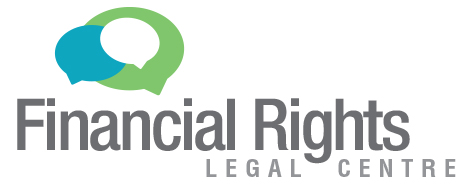This fact sheet is for information only. You should get professional advice about your personal situation.
Main ideas
• You can ask for documents related to your loan.
• The National Credit Code requires lenders to provide documents when you ask.
• If your loan is not covered by the National Credit Code, you can ask for information under the Privacy Act.
• Lenders can charge you for providing documents, but many don’t.
In this fact sheet:
Why you might want your loan documents
The documents you can ask for
• If your loan is covered by the National Credit Code
• If your loan is not covered by the National Credit CodeHow to ask for documents
• Old debts
• Asking from a lender
• Asking from a debt collector
• Asking after there has been a court judgment
Why you might want your loan documents
You might need to ask for your loan documents and account statements if you don’t have them anymore. You might need a clear record of the debt. You also might ask for documents if you think you could never have afforded the loan and you want to check if the lender assessed your loan properly.
When you ask for loan documents you do not need to:
- explain why you do not have the documents
- explain why you want the documents
- ask for permission from any joint borrower.
The documents you can ask for
When you ask, explain exactly what documents or information you want from the lender.
If your loan is covered by the National Credit Code
The National Credit Code is Schedule 1 of the National Consumer Credit Protection Act 2009 or the ‘National Credit Act’. Most consumer mortgages and loans are covered by the Act. To check if your loan is covered, read our fact sheet about the National Credit Act.
Borrowers, mortgagors or guarantors can ask for:
The Contract
You can ask for copies of:
- any loan contracts
- any credit related insurance contracts the credit provider has, for example, consumer credit insurance
- notices previously given to you under the National Credit Code, for example, a default notice.
If the loan was given less than 1 year ago, the lender has 14 days to provide copies.
If the loan was given over a year ago the lender has 30 days from the date of the request.
Statements
You can ask for:
- the current balance of your loan account
- any amounts credited or debited during the term of your loan contract
- any amounts currently overdue and when they became overdue
- any amount currently payable and the date that it became due.
If you ask for information going back less than a year, the lender has 14 days to provide the information.
If you ask for information or documents from over a year ago the lender has 30 days to provide it.
How much you owe
You can ask for a loan payout figure with details of the items that make up the amount, for example, interest and fees. You might ask for this if you are refinancing or selling a secured asset and need to know the exact amount you owe at a specific date, so you can pay the loan off in full.
The lender has 7 days to give you the payout figure but will often do it faster.
Application and suitability documents
Lenders, finance brokers and lease companies must check your loan or lease is suitable before they give you the credit or increase your credit limit. You can ask for a copy of the loan application form, assessment and any verifying documents (like pay slips and bank account statements).
Your lender can charge you a fee for providing documents
The lender may have set fees to provide documents. If you cannot afford the fees, ask the lender to waive them. If they refuse to waive them, get legal advice.
If your loan is not covered by the National Credit Code
You can ask for a copy of your documents even if your loan is not covered by the National Credit Act.
Requests under Codes of Practice
If your lender has committed to a Code of Practice, you may be able to ask for documents. For example, the:
- Code of Banking Practice (paragraphs 22-26). Check if your lender subscribes to the Code of Banking Practice.
- Customer Owned Banking Code of Practice (sections 12, 35-39 and 69). Check if the credit provider subscribes to the Customer Owned Banking Code of Practice.
Requests under the Privacy Act
You can also ask under the Australian Privacy Principles (under the Privacy Act).
Your lender will likely hold your ‘personal information’ including:
- a copy of your loan application and supporting documents
- a copy of your loan contract
- letters the lender has sent you
- letters you have sent to the lender
- file notes of conversations you have had with the lender
- loan account statements.
The lender can charge you a reasonable fee for giving you the information.
The information must be provided within a reasonable time. If you need the information urgently, you may be able to make arrangements with the lender to view your file.
How to ask for documents
Old debts
If you have not paid the debt for a long time, be careful not to admit you owe the debt by asking for documents. Read our Recovery of Old Debts fact sheet and consider using our Old Debt sample letter.
Asking from a lender
You can ask for your documents over the phone or in person. However, the timeframes mentioned in the National Credit Act refer to written requests for information. You can ask in writing by using our Requesting Documents sample letter.
Asking from a debt collector
A debt collector who has bought the debt has the same responsibility as the original lender. You can ask for documents, but it may take longer to get them.
Asking after there has been a court judgment
Get legal advice immediately if you are not sure you owe the debt or have other concerns.
If the lender won’t give you the documents you ask for
- Go to your lender or debt collector’s complaints department – you can find their details on the Australian Financial Complaints Authority (AFCA) website.
- Complain to AFCA – read our Financial Complaints to AFCA fact sheet
- Complain to the Australian Information Commissioner, Phone: 1300 363 992
Get legal advice if you’re not sure what to do.
Need more help?
Visit our Useful Links page for a list of other resources.
Last updated: June 2025

